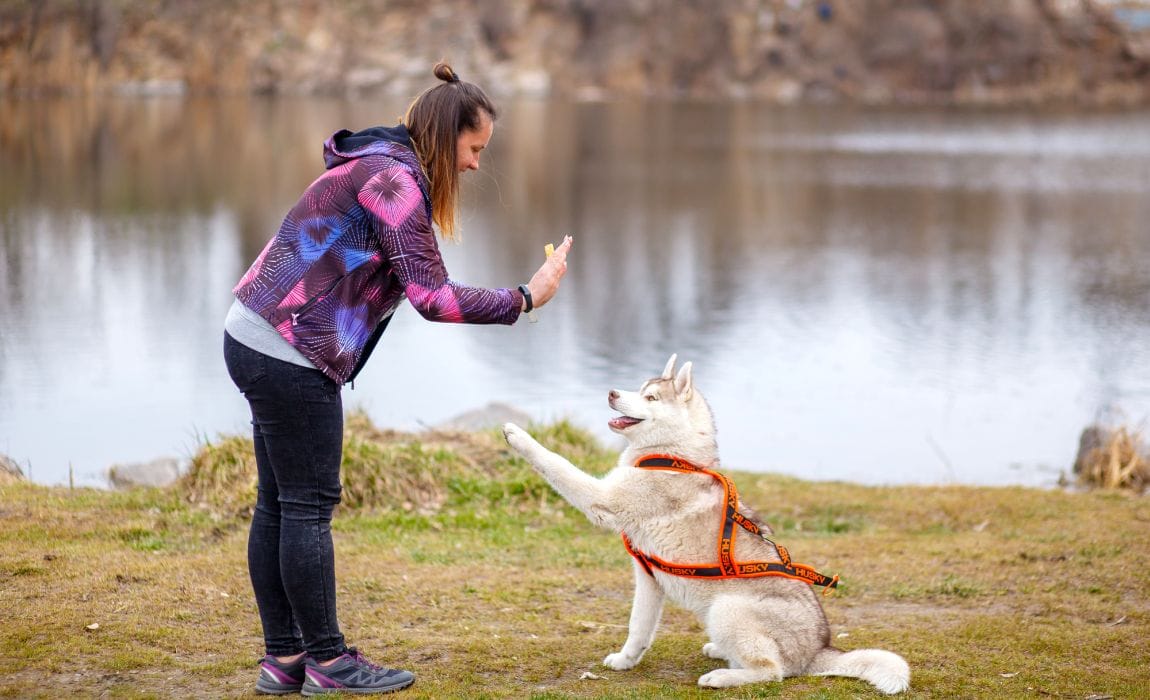Leading Pet Dog Training Tips for a Well-Behaved Companion
Training your dog to be a well-behaved friend calls for a nuanced understanding of canine actions and the implementation of reliable approaches. Important commands such as "Sit," "Keep," and "Come" work as the foundation for great manners, while positive reinforcement techniques can substantially enhance knowing. Establishing a consistent routine and focusing on very early socializing are essential parts that add to an unified relationship. However, the trip to a well-mannered pet dog includes greater than just these essentials; it demands a deeper expedition of techniques that can transform your training approach.
Comprehending Dog Actions
Comprehending canine actions is vital for efficient canine training and fostering a harmonious relationship between canines and their owners. Dogs are intricate animals, displaying a wide variety of habits affected by genes, environment, and socialization. Recognizing the underlying inspirations for a dog's activities-- such as fear, excitement, or territorial impulses-- can dramatically improve training efficiency.
Social communications with other dogs and human beings play a critical function in forming behavior. Dogs that experience favorable socializing are typically a lot more adaptable and well-mannered.

Essential Training Commands
Grasping vital training commands is vital for establishing reliable interaction between pets and their proprietors. These commands work as the structure for a well-behaved pet and can considerably enhance the general relationship in between animal and owner.
Key commands consist of "Sit," "Stay," "Come," "Down," and "Heel." The command "Sit" is often the initial taught, as it motivates peace and focus. "Keep" reinforces a pet dog's capability to remain in one position, promoting self-discipline. "Come" is crucial for safety, ensuring that your pet dog go back to you when called. "Down" instructs your dog to exist down, which can aid in handling thrilled behavior. Dog training near me. "Heel" teaches your canine to walk together with you, fostering far better leash good manners.
Practicing these commands in numerous settings helps canines generalise their training and react properly, regardless of interruptions. By investing time in showing these vital commands, owners can grow an unified and considerate partnership with their canine companions, boosting both safety and enjoyment in day-to-day communications.
Favorable Support Techniques
Positive support methods are important strategies in pet dog training that concentrate on rewarding desired habits to urge their recurrence. This approach leverages the all-natural knowing procedures of dogs, enabling them to associate particular activities with favorable outcomes. By using treats, praise, or play as benefits, fitness instructors can go now properly encourage dogs to duplicate the actions they wish to enhance.
To apply favorable reinforcement, it is essential to supply incentives promptly after the desired actions takes place. This assists the dog make a clear connection between their activity and the reward. Consistency is additionally essential; rewards should be given every single time the desired actions is shown throughout the preliminary training phase, gradually transitioning to a variable schedule as the behavior becomes more reputable.
Recognizing your dog's preferences can improve the training experience. Ultimately, positive support promotes a relying on partnership in between the dog and owner, making training a more delightful and efficient procedure that constructs a well-behaved companion.

Socialization Strategies
Efficient socializing strategies are important for a pet dog's development, as they help establish an all-around and certain friend. Early direct exposure to different atmospheres, individuals, and other animals is important to avoid behavioral issues in adulthood. Begin this process during the critical socializing period, which generally happens great site between 3 and fourteen weeks old.
Present your young puppy to diverse stimulations, such as different surfaces, appears, and smells. Managed experiences with various other pets and pleasant human beings can cultivate positive organizations. Young puppy classes are an exceptional resource, providing structured settings for social interaction and learning basic commands.
Gradually raise the complexity of socializing experiences. Take your pet to parks, pet-friendly stores, and public events, guaranteeing each encounter declares. Observe your pet dog's reactions and eliminate them from overwhelming situations to avoid fear-based feedbacks.
Use favorable support to compensate calm and positive habits throughout social communications. This might involve deals with, praise, or playtime. Keep in mind, persistence is key; each pet dog has its own my sources rate for readjusting to new experiences. By executing these socialization techniques, you prepared for a well-adjusted and friendly canine buddy.
Consistency and Routine
Establishing consistency and routine in pet training is crucial for cultivating a feeling of safety and security and understanding in your pet. Canines prosper on predictability; knowing what to anticipate assists them really feel secure and decreases anxiety.
Integrating a structured regimen into your training sessions also improves your pet dog's discovering experience - Dog training near me. Arrange everyday training sessions at the exact same time every day, making sure that both you and your canine are mentally prepared. Short, constant training sessions are more efficient than long, seldom ones; go for 5 to 10 minutes of focused training multiple times a day
Integrate training right into daily tasks-- compensate your dog for resting before meals or strolling comfortably on a chain. Generally, a constant approach, combined with an organized routine, lays the structure for a mannerly friend, advertising a harmonious relationship between you and your canine.
Final Thought
Positive support methods offer to urge desired behaviors, while very early socializing prepares pet dogs for varied environments. By highlighting these vital aspects, the bond between proprietor and canine reinforces, ultimately leading to an unified and meeting partnership.